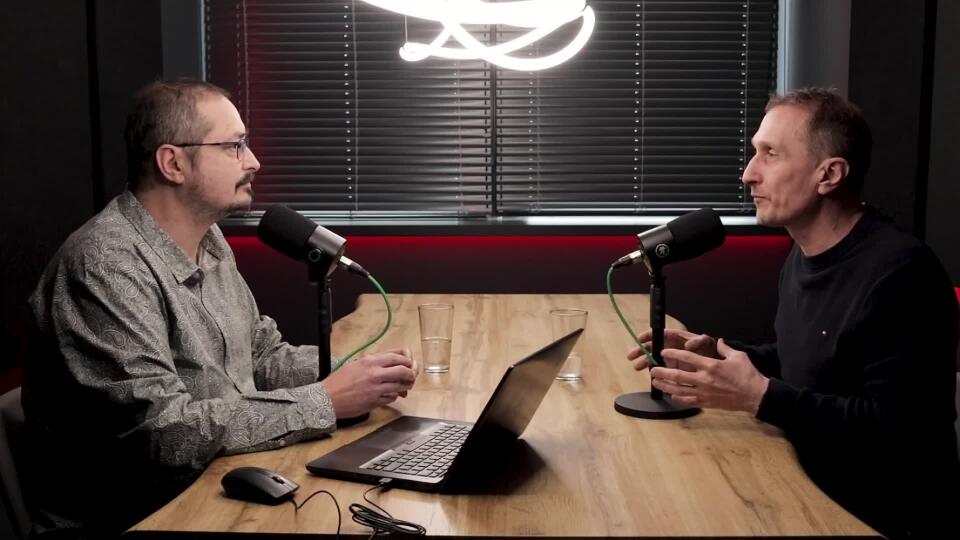The possibility of a Russian-Ukrainian armed conflict threatens the Slovak economy. One of the main inlets of Russian gas is in Veľké Kapušany. Were the gas supply to stop for a longer period of time, Slovakia could expect great damage to its economy, as we have no stable supply lines from other regions.
The lack of Russian oil would paralyse the Slovnaft refinery. Its technologies are made to process eastern oil Urals, not western North Sea oil Brent.
Kyiv provides Slovakia with something even more valuable than raw materials – labour. In December 2021, Slovak companies employed more than 13,500 Ukrainians.
And if the West were to impose sanctions on Russia, Slovakia would suffer along with it. In the last three years, Slovakia has exported on average 12% of its annual production to the Russian market and 2% to the Ukrainian one.
Slovak bakers and pasta and pastry producers can already feel the impact of the conflict. The wheat prices have gone up and the producers can no longer cover their production costs. Russia is the biggest wheat exporter in the world, while Ukraine ranks fourth.
TREND has asked 65 selected personalities of the Slovak economy about the impact an armed conflict in Ukraine would have on their business.
Defence treaty: The Parliament has approved the defence treaty between Slovakia and the United States with 79 votes for it and 60 against out of 140. The treaty has now been ratified by the President too. Take a look at how individual MPs voted.
Poland lures in Slovak shoppers while Slovak shops suffer
Slovak inflation reached 8.5% in January – the third highest value in the entire eurozone.
The proposed reduction of value-added tax (VAT) on certain goods and services designed to keep the prices artificially low may not be reflected in the prices after all, warn analysts from the National Bank of Slovakia. But the government is considering one more plan – controlling how much supermarkets buy their stock for and how much they sell it for. This proposal has met with pushback from the private sector.
While prices in Slovakia keep rising, Slovaks living close to borders choose to spend their money in other countries – mainly Poland, where the government has scrapped VAT on food and gas.
This trend of grocery tourism has impacted negatively on businesses on the northern border of Slovakia. They have recorded a decrease in sales from 5% to 30%.
Samuel Vlčan, Minister of Agriculture and Rural Development, said that groceries brought back from Poland are often subpar or dangerous, as Poland has been accused of having a systemic issue of insufficient food control.
An ultra-discount supermarket is heading to Slovakia
Retail chains keep thriving and expanding even during the pandemic. COOP Jednota, for instance, opened 22 new shops and modernised 65 just last year.
The average customer has been going through changes too. They buy more and even online, want more comfort, and respond to technology and sustainability. Comfort especially is key. Retailers who provide delivery services are shown to have higher sales.
There’s a new player in the retail game – the Russian supermarket Mere. It has already opened three stores in the Czech Republic and now it is heading to Slovakia. Its range includes about 400 items of food and non-food goods, a tenth of which comes from Russia.
Mere promises unbeatably low prices on the basics like tea, alcohol, meat products, and household items. And they don’t do sales – the prices are constantly low.
Mere’s business model is simple – it saves money where it can. Goods are displayed in large hangars and stored on pallets.
The ultra-discount supermarket is coming to the country just as the cost of living is rising and the pandemic has tightened people’s budgets. Preliminary research suggests the majority of people will be interested to give the newcomer a chance.
Other stories of the week
- A team of Slovaks designed the networking app WHOO to help people connect with other users in their vicinity through searching for their social media profiles. More than 100,000 people have downloaded it to meet people at events and in their neighbourhood. Now, the creators have attracted an investor and are heading to the US.
- The government has approved a bill to tax excessive profits of nuclear power plants. But according to Slovenské elektrárne, the tax by far exceeds the company’s expected profit and could bankrupt the company and derail its efforts to open a new block of the Mochovce nuclear energy plant.
- An international architectural design competition will be announced for the reconstruction of the Bratislava Main Railway Station. The state doesn’t have sufficient finances and so it expects a private investor to be involved in the project.
- Slovakia has a large historical heritage in the form of a branched railway network, and it is both a blessing and a curse, says state secretary of the Ministry of Transport Jaroslav Kmeť. One third of the infrastructure is neglected, causing delays and complications. As railways will be a European priority in the upcoming years, bold investment plans will be necessary for Slovakia to be able to compete with the rest of the continent.
Thank you for reading.
See you next week






